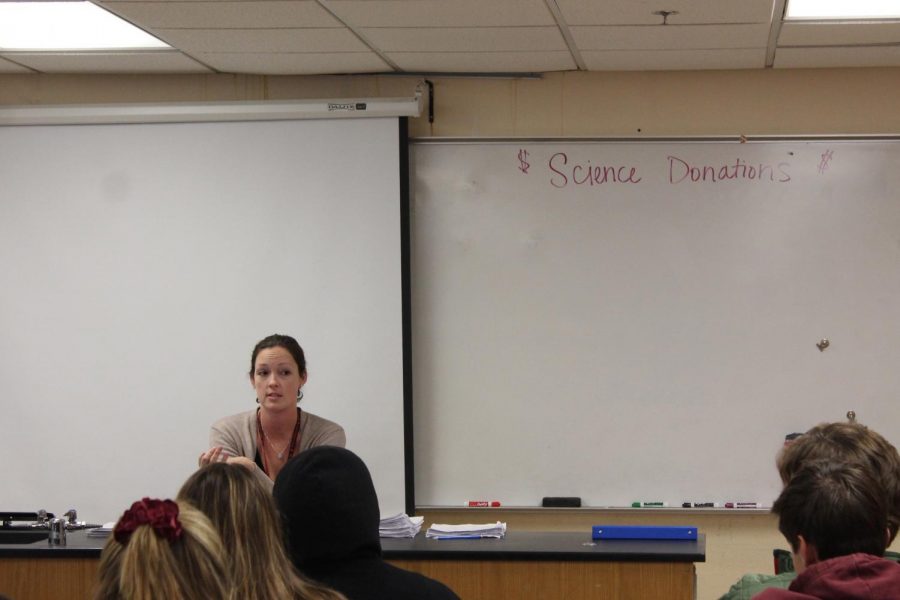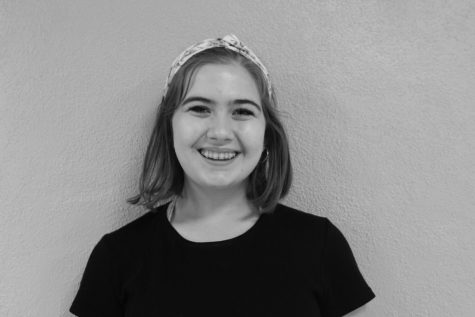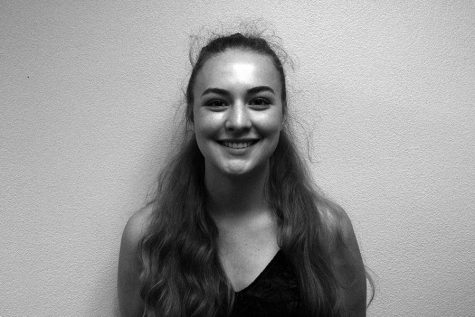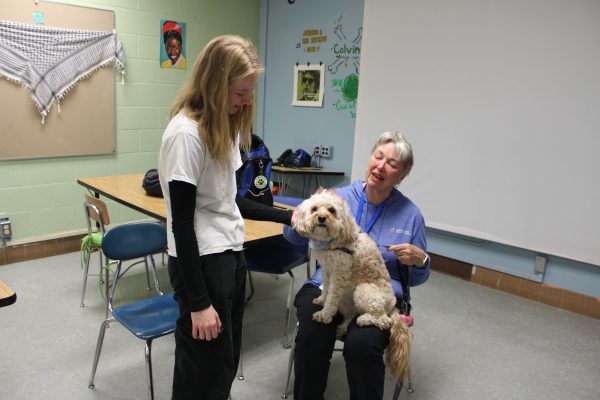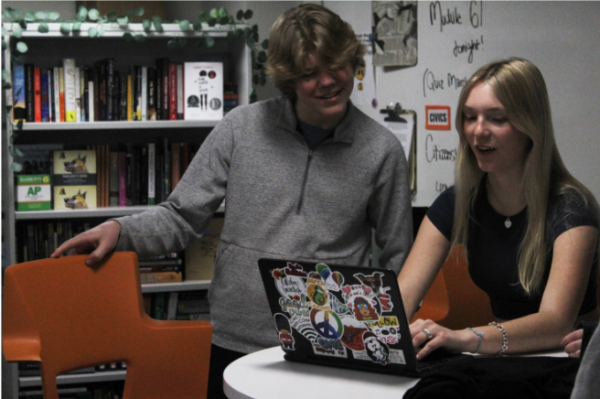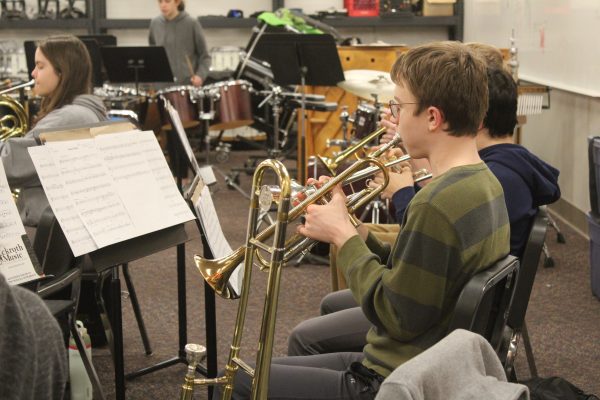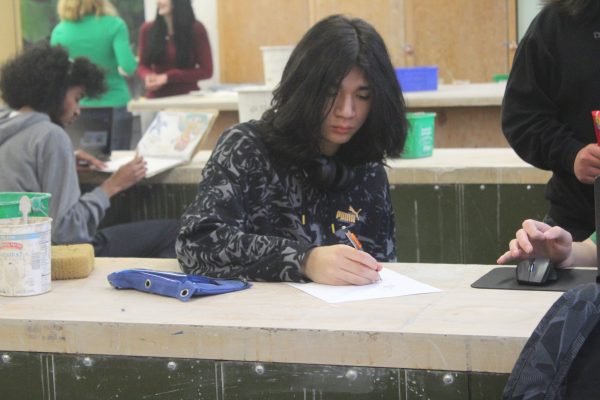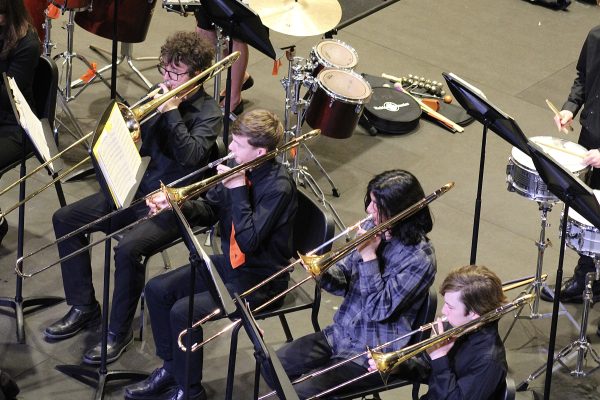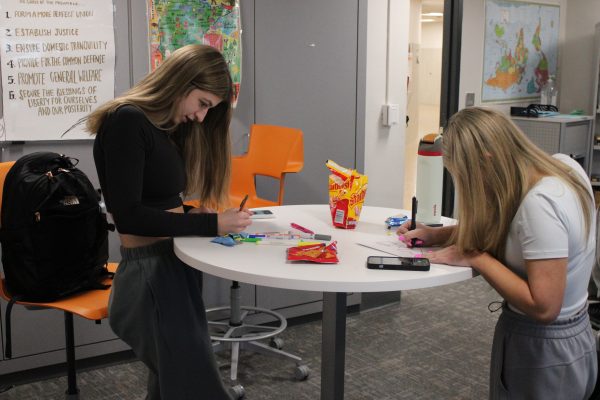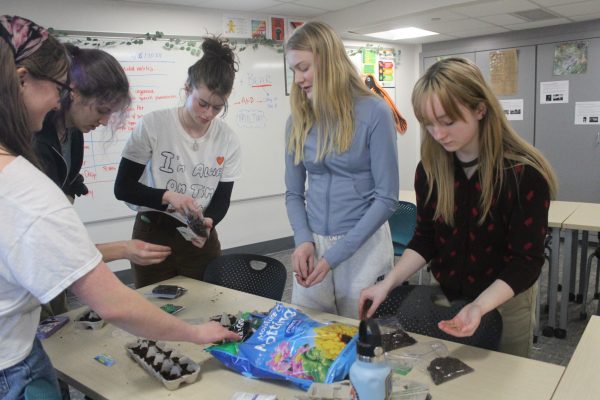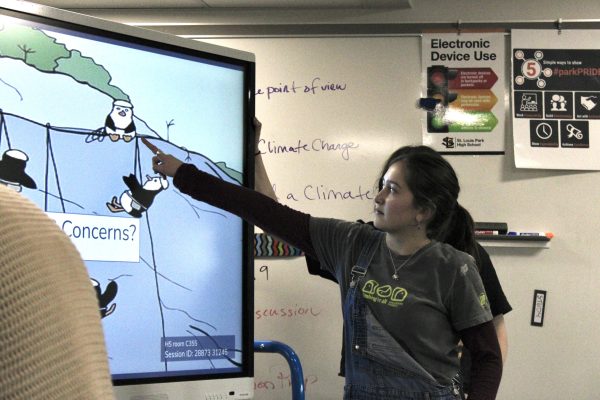Science department accepts donations
Additional funding benefits students
IB Biology teacher Julie Schilz teaches in a class on November 9. The science department accepts donations from students and their families to help fund the science program.
November 20, 2017
When IB Biology teacher Julie Schilz informed her class about the science department accepting donations from students’ families, junior Thomas Pelowitz said he thought it was a good idea.
“I think it’s good teachers don’t necessarily pressure (donations), it’s just more thought of as a voluntary donation,” Pelowitz said.
According to science department head Mark Miller, the department has been asking for donations for at least ten years due to the science budget allocated by the district typically running out.
“We saw a huge support from parents and families to support science, so we kept doing it,” Miller said. “Science is expensive, all of the supplies that we use add up, so we can run through that budget pretty quickly.”
Science teacher Linda Tillou said donations help the science department serve students better.
“We use (the money) for replacing glass wear, updating some technology, buying equipment and chemicals,” Tillou said. “These are all constant needs.”
Pelowitz said he benefits from the donations in the classroom.
“I learn a lot through labs, and we can’t have labs without the materials or the microscopes or any of the utilities that we need,” said Pelowitz.
Miller said the department sends out a letter to parents asking for donations every year before open house and donation money goes to purchasing supplies used directly by students.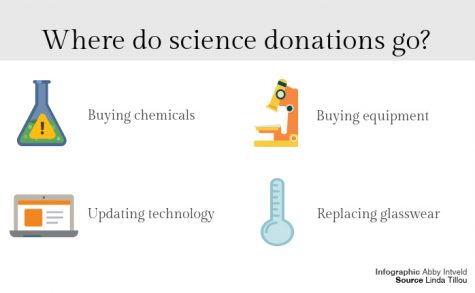
“We always earmark that money because families donate for their students, not to get a teacher a new book or anything like that,” Miller said.
According to Miller, the department receives about $1,500 in donations per year.
“It doesn’t seem like a huge amount, but it’s enough to make a difference,” Miller said. “It would be great if (the science department) didn’t need donations. If education was funded the way that it is suppose to be, we wouldn’t have to ask for money.”



